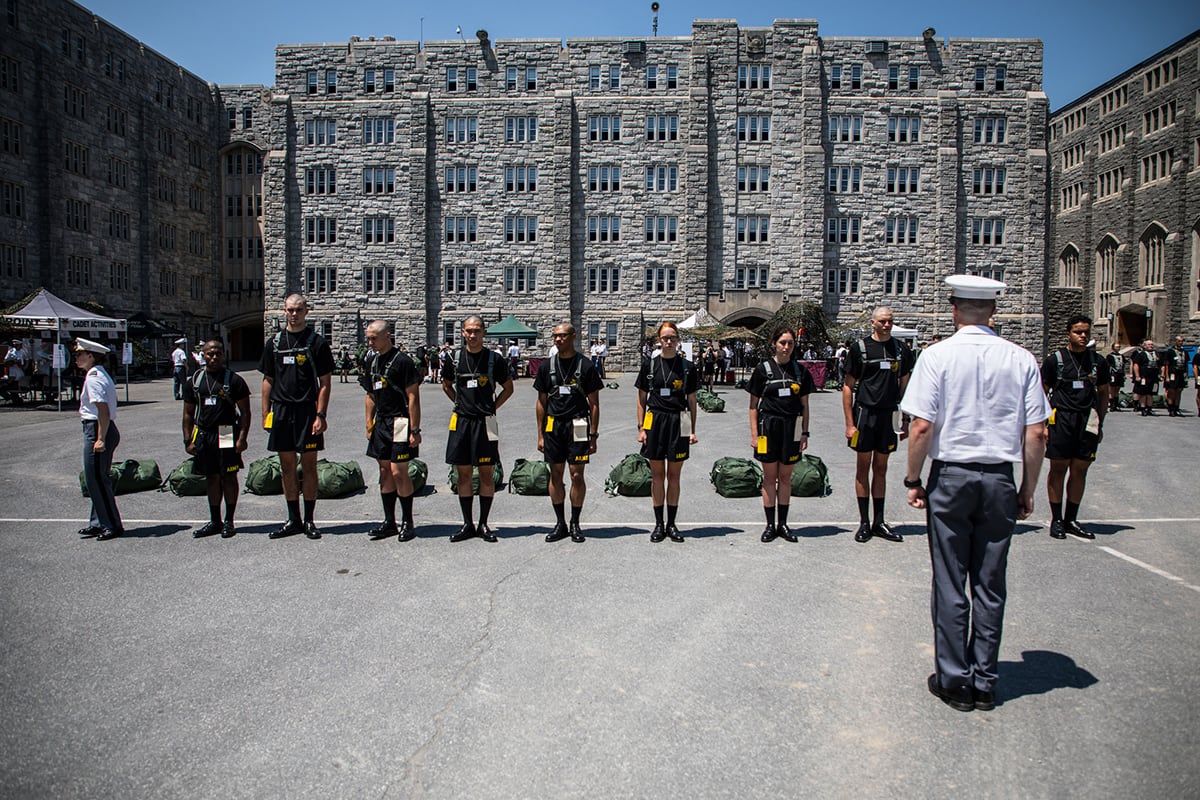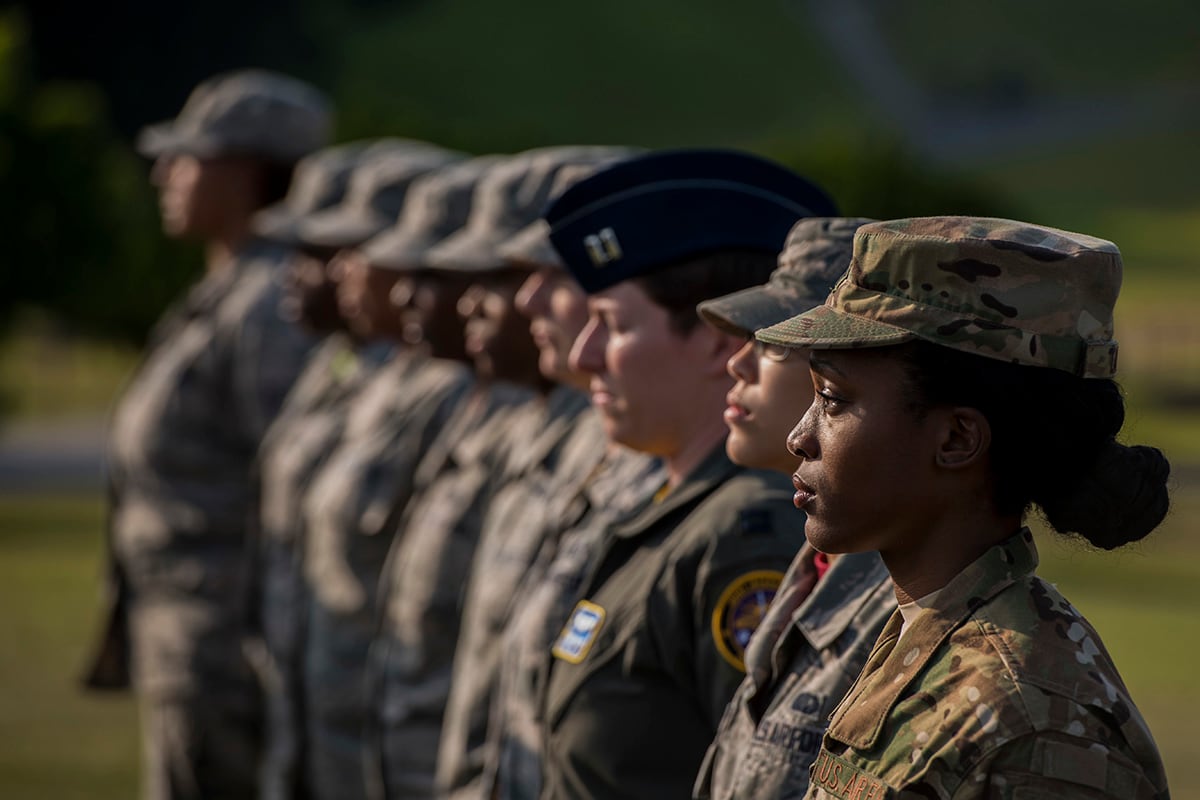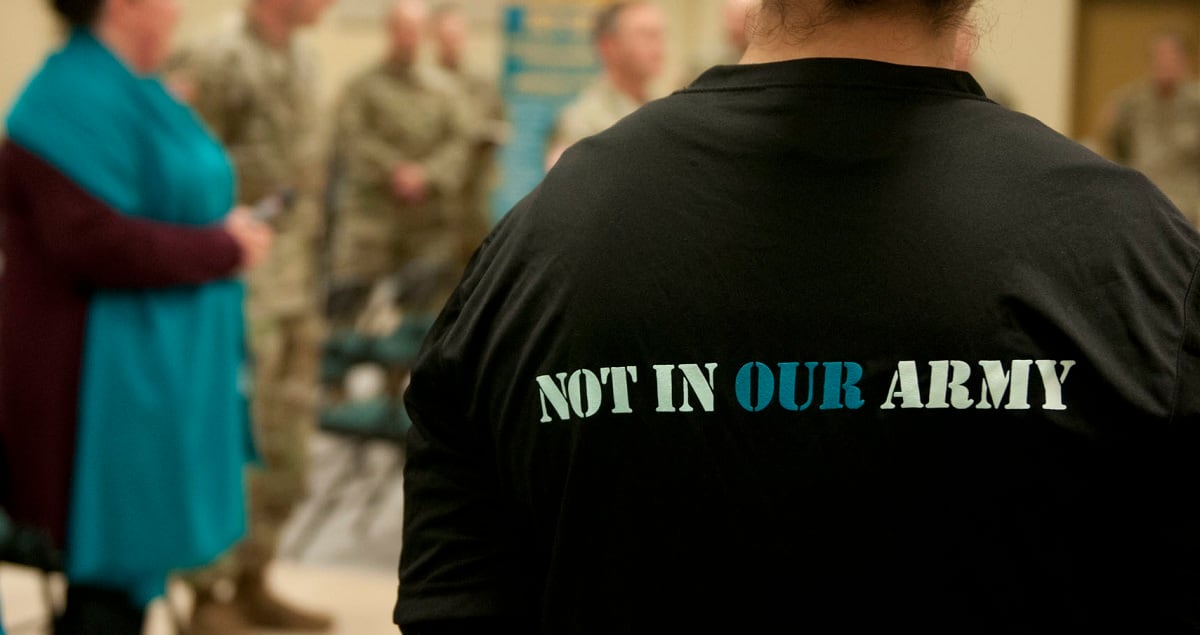A three-judge panel’s decision to overturn a U.S. Military Academy cadet’s rape conviction and 21-year sentence has outraged military sexual assault victim advocates.
Jacob Whisenhunt is free ― to return to classes or dis-enroll and return to civilian life ― after those judges determined there wasn’t sufficient evidence in his case for a conviction. They found that because the victim did not struggle and Whisenhunt made no attempt to cover up their sexual encounter, the circumstances did not amount to rape beyond a reasonable doubt.
That decision further stigmatizes already discouraged survivors of military sexual assault at a time when reports of assault and harassment are on the rise, a former Air Force chief prosecutor told Military Times on Wednesday. The number of cases of unwanted sexual contact in the military has seen a 37 percent increase, to more than 20,000, in the last two years, according to the Defense Department’s most recent statistics.
“When people come forward and go through the court-martial process ... it’s a horrifically harsh process for them,” said retired Col. Don Christensen, advocacy group Protect Our Defenders. “To go through all that and then to have it overturned, it’s not only devastating to that person, it sends a hugely negative message to any other survivor who might come forward."

Whisenhunt was convicted of three counts of Article 120 sexual assault in May 2017, by a jury of six West Point faculty and staff.
“Especially when you have this kind of victim-blaming opinion,” he added. “That opinion feeds into commanders that might already feel that way, or the rank and file who already believe that way.”
The ability of judges to throw out a conviction based on their own interpretation of the evidence ― known as evaluating “factual sufficiency” ― is unique to the military justice system, he said, and can be dubious for a number of reasons.
“Based on my multiple decades of experience in the court-martial process, the fact that the court members gave the sentence they did ― 21 years, which is one of the stiffest sentences I’ve ever seen for this kind of a case ― that tells me they had no doubt to the accused’s guilt,” Christensen said.
The original appeal focused on reducing his sentence and condensing two of those specifications of assault, because Whisenhunt was charged twice for the same digital penetration incident. But in their decision, the appellate judges opted to throw out all three charges.
“Even though they have the authority, it should almost never be used, because they should be giving great deference to the findings of fact,” Christensen said.
In the case of a court-martial, the facts of the case and the witnesses have been vetted and substantiated by trained criminal investigators, upheld by a local commander and then affirmed by a judge and jury.
“That is what their job is, the foundation of American justice," he said. "This factual sufficiency that we have in the military is the antithesis of American justice.”
And, regardless of whether defense attorneys request in their appeal to review the evidence, UCMJ requires that the judges do it anyway.
The panel wrote that they doubted Whisenhunt could have assaulted the sleeping cadet, while their squad mates slept nearby during a summer field training exercise, without anyone noticing.
“This is particularly true when there is no evidence that appellant threatened [the victim] or took any steps, such as covering her mouth, to prevent an outcry,” they wrote.
But to Christensen, that finding amounts to an antiquated notion of rape perpetuated by officers who are not educated in the well studied dynamics of sexual assault.
“It reads like something from the ’50s," Christensen said. “I’ve prosecuted a number of cases where the facts are very similar to what this woman described ― even though there were other people around, they just froze, they couldn’t do anything.”
And because of the way the military appoints appellate judges, there is no standard of experience in a court room or in handling rape cases before being assigned to hear these appeals.
“What they said ... is really offensive, that that is why they found there was consent,” Christensen said. “That tells me that these three judges have very little experience. Maybe I’m wrong, but it doesn’t seem like they have very much experience with sexual assault cases.”
“A real problem”
The military assigns appellate judges not based on merit or experience, Christensen said, but through a general assignment process designed to fill vacancies with judges of the proper rank and years in service.
“There is a real problem with the way the military selects appellate judges,” he added. “I say that having been selected as an appellate judge, ”adding that at one point in his career, the most experienced sitting appellate judge in the Air Force had one prior year on the bench.
The issue of inexperience comes up often in the larger discussion of military sexual assault. While the fact-finding teams, criminal investigators and prosecuting judge advocates may specialize in those complex crimes, the commanders who levy charges and the judges who hear the cases may not.
“The average JAG isn’t dealing with [any criminal] case every year,” he said. “The average commander’s not even dealing with a case every year. One in 10 commanders is seeing a case go to trial every year.”
The issue dovetails with efforts from Congress, lead by Sen. Kirsten Gillibrand, D-N.Y., to professionalize the process for prosecuting sexual harassment and assault, starting by taking the decision to pursue a case away from a unit commander, who is not explicitly trained in handling them.
It would take more legislation to put sexual assault experts at every step of the process, Christensen said, but it would be a step in the right direction.
RELATED

Meanwhile, sexual assault reports are up across the military: Estimates from DoD’s 2018 Sexual Assault Response and Prevention report peg incidents of unwanted sexual contact at 20,500, up from 14,900 during the last survey in 2016.
That’s a 37 percent increase.
“To put it bluntly, we are not performing to the standards and expectations we have for ourselves or for each other," acting Defense Secretary Patrick Shanahan said in a statement after its May release. “This is unacceptable. We cannot shrink from facing the challenge head on.”
While military leadership have attributed an increase in reporting to a growing comfort with the SAPR system, prosecutions and convictions have not proportionally increased, while feedback about toxic command climates and lack of trust in leadership have increased, per DoD’s survey.
In short, though they might know the processes for reporting harassment or assault, many service members don’t feel their chains of command would take their concerns seriously, or fear they would be retaliated against for speaking up.
Soldiers with concerns about their chains of command should seek an investigation, Army Secretary Mark Esper told Army Times in May.
“We have an aggressive inspector general process to go after that,” he said.
Through IG hotlines, command climate surveys or other anonymous means, service members can raise concerns about their leadership.
“The bottom line is, we hold commanders accountable for what happens in their units ― or doesn’t happen,” Esper said. “If you’ve going to empower commanders, you have to hold them accountable, and we take that very seriously.”
However, he did not address whether the Army would consider reviewing sexual assault case decisions unless specifically alerted.
Meghann Myers is the Pentagon bureau chief at Military Times. She covers operations, policy, personnel, leadership and other issues affecting service members.




